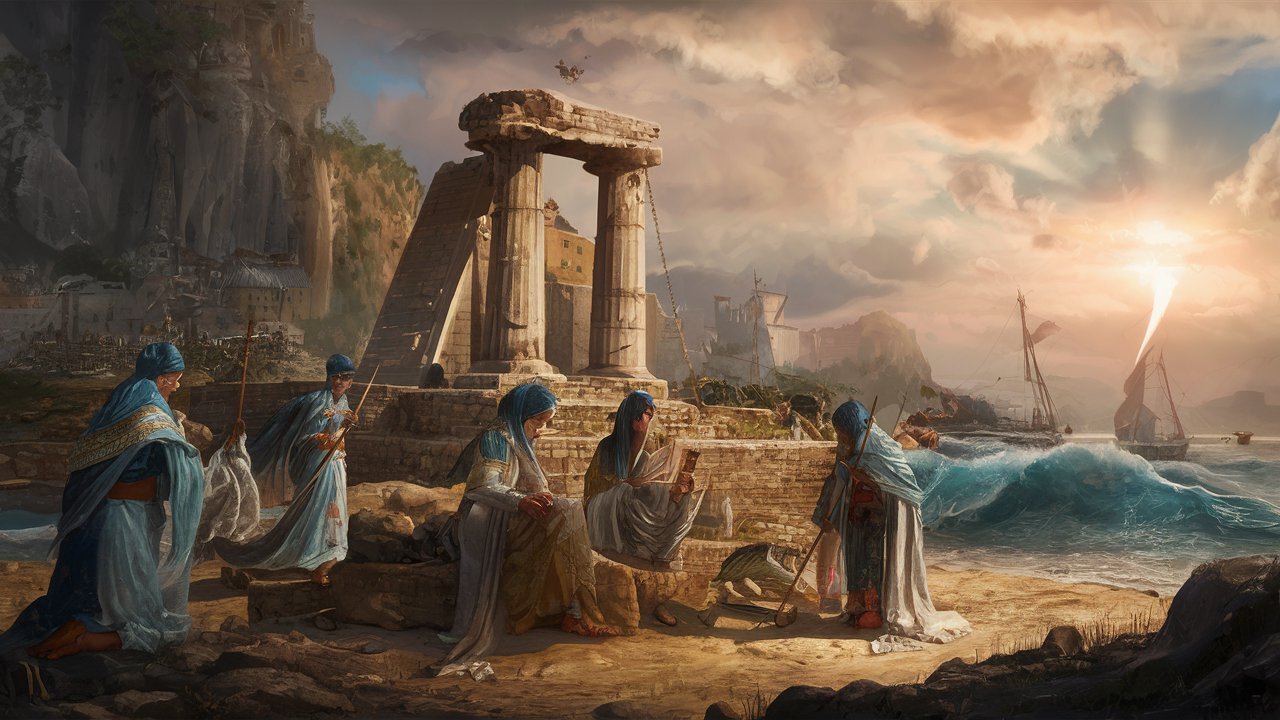
Ever wondered who the Phoenicians were? These ancient people, known for their seafaring skills, left a lasting mark on history. Originating from the eastern Mediterranean, they established powerful city-states like Tyre, Sidon, and Byblos. Their influence spread far and wide, thanks to their extensive trade networks. They didn’t just trade goods; they traded ideas, too. One of their most significant contributions? The alphabet. Yes, the Phoenicians developed one of the earliest alphabets, which became the foundation for many modern scripts. Their legacy lives on in the languages we speak today. Ready to dive into more fascinating facts about these ancient mariners? Let’s set sail!
Who Were the Phoenicians?
The Phoenicians were an ancient civilization known for their seafaring skills and trade networks. Originating from the coastal regions of modern-day Lebanon, they played a crucial role in the Mediterranean world.
-
Seafaring Masters: The Phoenicians were exceptional sailors. Their ships traveled across the Mediterranean, reaching as far as Spain and North Africa.
-
Inventors of the Alphabet: They created one of the first alphabets, which influenced Greek and Latin scripts. This innovation made writing more accessible.
-
Purple Dye Producers: Known for producing a rare purple dye from murex snails, this dye became a symbol of royalty and wealth.
Phoenician Cities and Culture
Their cities were bustling hubs of commerce and culture. Each city had its unique contributions to the Phoenician legacy.
-
Tyre and Sidon: These were the most prominent Phoenician cities. Tyre was famous for its strong fortifications, while Sidon was known for glass production.
-
Carthage: Founded by Phoenician settlers, Carthage became a powerful city-state in North Africa, rivaling Rome.
-
Religion: They worshipped a pantheon of gods, with Baal and Astarte being among the most significant deities.
Trade and Economy
The Phoenicians were master traders, establishing extensive trade networks that spanned the Mediterranean and beyond.
-
Trade Networks: They traded goods like timber, glass, and purple dye. Their trade routes connected various civilizations, facilitating cultural exchange.
-
Colonies: They established colonies in strategic locations, including Cyprus, Malta, and Sicily, to support their trade endeavors.
-
Currency: Phoenicians used silver ingots and coins for trade, which helped standardize transactions across different regions.
Contributions to Science and Technology
Their advancements in various fields left a lasting impact on future generations.
-
Shipbuilding: They developed advanced shipbuilding techniques, including the creation of the bireme, a ship with two rows of oars.
-
Navigation: Phoenicians used the North Star for navigation, allowing them to sail at night and explore new territories.
-
Glassmaking: They were pioneers in glassmaking, producing high-quality glassware that was highly sought after.
Legacy and Influence
The Phoenicians' influence extended beyond their time, shaping the cultures and civilizations that followed.
-
Cultural Exchange: Through trade, they spread their alphabet, art, and religious practices to other cultures, leaving a lasting legacy.
-
Historical Records: Much of what we know about the Phoenicians comes from records of other civilizations, such as the Greeks and Romans.
-
Modern Lebanon: The legacy of the Phoenicians lives on in modern Lebanon, where their history and contributions are celebrated.
Their story is a testament to human ingenuity and the power of cultural exchange.
The Lasting Legacy of the Phoenicians
Phoenicians left an indelible mark on history. Their alphabet became the foundation for many modern scripts. They were master shipbuilders and navigators, spreading their influence across the Mediterranean. Their trade networks connected distant lands, bringing goods and ideas together. Purple dye from Tyre became a symbol of royalty. They established colonies like Carthage, which later rivaled Rome. Their religion and mythology influenced neighboring cultures. Even their art and craftsmanship showcased their advanced skills. The Phoenicians were more than just traders; they were cultural ambassadors. Their contributions to language, commerce, and civilization continue to be felt today. Understanding their achievements helps us appreciate the interconnectedness of ancient societies. The Phoenicians remind us that even small civilizations can have a profound impact on the world. Their legacy is a testament to human ingenuity and the power of cultural exchange.
Was this page helpful?
Our commitment to delivering trustworthy and engaging content is at the heart of what we do. Each fact on our site is contributed by real users like you, bringing a wealth of diverse insights and information. To ensure the highest standards of accuracy and reliability, our dedicated editors meticulously review each submission. This process guarantees that the facts we share are not only fascinating but also credible. Trust in our commitment to quality and authenticity as you explore and learn with us.


